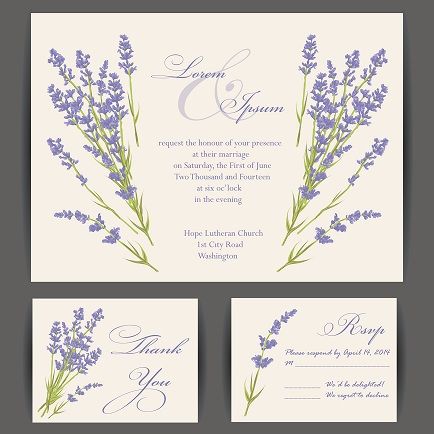
Getting engaged often leaves couples with lots of questions regarding the wedding. After all, if it's your first marriage, this is probably the first time you are going to need to make so many decisions. You want to do things right so you don't have any blunders come your wedding day. There are many questions people have when it comes to proper wedding etiquette, especially over wedding invitations.
RSVPs
Of course, you need to know how many people are going to be at your wedding in order to figure out seating and how much food to have at the reception. What happens when you have sent out your invites but have only received half of the RSVPs? How long do you wait before asking people? For one thing, put the date you need people to respond by on the invitation. That way, your guests have a way of knowing when they need to tell you. You should give your guests enough time to figure out their schedules and respond, but you also need to have enough time to make the proper arrangements. There are a few things you can do to help ensure you get your RSVPs on time:
- Offer an email address they can RSVP to in order to make the process faster and easier for both of you.
- Include a self-addressed stamped envelope so all they have to do is fill out the card and stick it in the mail.
- If the date you need to hear by approaches and you haven't heard anything, you can start contacting those whom you have not heard from. Other members of your wedding party can help with this too.
The Plus One
If you give everyone the opportunity to bring a date or significant other to your wedding, you have the potential of doubling the number of guests at your wedding. Include families and these numbers can increase even more. For those who are married, it's generally expected that you include the spouse in the wedding invitation, even if you have never met him or her. For those who are in serious relationships, it's up to you to decide whether or not he or she should be included. You don't have to give everyone the option to bring a date, however. As far as families go, you should be sure that everyone who is related to you knows the family is invited. After all, it would be strange to invite your aunt and uncle but not your cousins. With friends and acquaintances whom you don't know particularly well, it's okay to ask that children not attend.
Inviting Who Your Parents Want
There may be some people your parents want to invite to your wedding whom you don't particularly care for. If your parents are paying for a good chunk or all of your wedding, you should probably let them invite who they want. Of course, exceptions apply if you have strong feelings about this or have a specific reason you don't want someone to attend. If you are the one footing the bill for your wedding, then it should be up to you who to invite. Your wedding day is not for your parents, and you should have only who you want at your wedding.
Sending out wedding invitations should not be as stressful as you might expect. Get the invites out in a timely manner so your guests have enough time to respond. Include information as to whether or not a plus one or family is invited to the wedding. Finally, determine ahead of time how much control your parents have over who goes to your wedding. These things can all make the process of figuring out who is attending your wedding much easier.
Add Your Comment